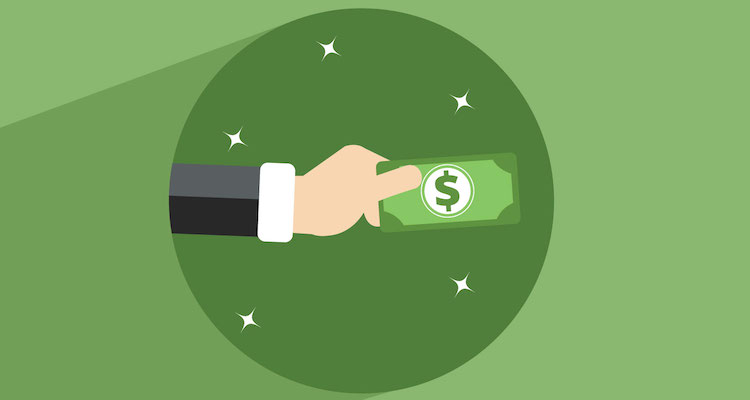Donating to charities and nonprofits is one of the most fulfilling uses of your money, but should you hand over your hard earned dollars to a nonprofit if you have big debt? Probably not. Let’s take a look at why, how you can have a greater long-term impact, and other ways to contribute outside of your checkbook so you can put your finances first.
Table of Contents
ToggleShould You Donate to Charity If You are in Credit Card Debt?
Why credit card debt should keep you from donating
Finance experts often argue about whether or not any type of debt could be considered “good debt,” but there is a nearly universal agreement that credit card debt is bad for consumers. If you have credit card debt, you’re likely paying upwards of 20% APR on your balance.
If you have an $8,000 credit card balance with a 20% interest rate, that means you will pay around $1,600 per year in credit card interest. When you have to pay hundreds or thousands of dollars per year in high-interest payments, you should not be giving generously to a religious organization or anywhere else.
If someone from your church pressures you to give up to 10% of your income when you can’t afford it, they don’t really have your best interest in mind. They have their own interests at heart. While writing a check to your church may give you a warm fuzzy feeling, it just puts you in more debt!
Turning around debt so you can make regular donations
If you don’t have any debt and want to donate to a favorite cause, that’s wonderful! If you do have debt, you should focus on getting out of debt so you can confidently contribute to a meaningful cause.
When you have credit card debt, you generally have to make big interest payments in addition to your efforts to pay off your balance. If you give $100 per month to charity, that is $100 per month you could use for your debt freedom efforts. Each month, that $100 could get you closer and closer to a debt-free lifestyle.
Once you have your debt paid off, you may find you have enough to easily donate to your comfort level without the struggles you had before. After all, you no longer have any interest or principal payments due. That credit card payment of hundreds of dollars per month can turn into a combination of savings and charitable contributions that better align with your long-term financial goals.
Giving is good, but be careful
Bill Gates and Warren Buffett started a movement of more than a dozen billionaires who have pledged to give away at least half of their wealth. These philanthropists are great inspiration for all of us non-billionaires, but we need to take a more pragmatic approach to giving.
I personally give to a few causes, including religious ones, but I have never had any credit card debt. In the days I had student loans and car loans, I was not in the habit of donating to any nonprofits or charities. These days, however, I only have a mortgage. That allows me to give to my favorite organizations without adding extra financial strain to my family.
Tithing is a common practice at churches around the world. The worth tithing comes from the same root as a tenth, or 10%, of your income. If you have credit card debt, donating 10% of your income is very irresponsible.
When you board a commercial flight, the flight attendants remind you that “you should always put your oxygen mask on yourself before helping others.” If you are unconscious, you can’t help anyone else let alone yourself. With your money, it works the exact same way. Credit card debt is the same thing as a depressurized cabin. If you can’t afford to pay off your debt, you can’t afford to take care of anyone else.
With the right financial discipline, you can turn around financial struggles and get your donations underway. But always be sure to pay off your high-interest debt before giving away money to others.
















